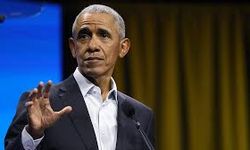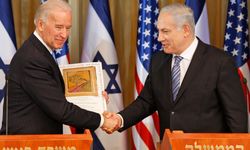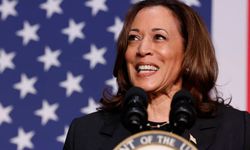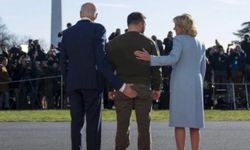Tensions are rising in the dispute between Canada and India following the murder in Canada of Hardeep Singh Nijjar, the director of the separatist Sikh organization Khalistan Liberation Force (KLF).
The murder in Canada on June 18 of KLF leader Hardeep Singh Nijjar, who had lived in the country as a Canadian citizen for many years but was considered a "terrorist" by India, led to mutual accusations and tension between the two countries.
While Canada blamed India for Nijjar's death, the two countries mutually expelled some of their diplomats.
Khalistan Liberation Force (KLF)
The KLF, which espouses the idea of Khalistan, meaning "Sikh country", has been carrying out attacks on military and diplomatic targets in India since 1987. The organization is known for the kidnapping of Liviu Radu, Romania's Charge d'Affaires in New Delhi.
Although India claims that it is Pakistan-backed and receives arms aid from Pakistan, it is known that the organization collects donations from the Sikh diaspora in the UK, Spain and Malaysia.
The organization considers all or part of Pakistan's Punjab, Khyber Pakhtunkhwa, Sindh, Balochistan and Kashmir regions to be Khalistan, except for India's Punjab province.
India, on the other hand, considers the KLF a "terrorist organization".
Operation on the Golden Temple, the most important shrine of Sikhism
The Golden Temple, known as the most important shrine of Sikhism, was especially remembered for the operations organized by the Indian army in 1984.
At the time, separatist Sikhs, who embraced the idea of Khalistan and wanted autonomy in the Punjab province, organized attacks on military and diplomatic targets, leading to violence in the province in the 1980s.
Then-Prime Minister Indira Gandhi authorized the Indian army to conduct a "military operation" at the shrine in June 1984 "to restore order and security on the grounds that separatist Sikhs were present at the Golden Temple".
According to official reports, hundreds of people were killed in the incident, including members of the army and Sikh leaders. Sikh groups claim that thousands of people died in the temple.
Gandhi, the then prime minister who approved the operation, was killed by his Sikh bodyguards on October 31, 1984.
After Gandhi's death, anti-Sikh protests increased in the country and violent incidents targeting Sikhs took place.
According to data from the Indian Ministry of Home Affairs, 2,732 people lost their lives in the violence across the country.
Khalistan Liberation Force (KLF) chief Nijjar killed in Canada
KLF was once again in the spotlight with the killing of Hardeep Singh Nijjar in Canada.
Nijjar's name was on a list of 40 terrorists recently released by India.
Nijjar, a KLF executive on India's wanted list, was killed in an armed attack in Surrey, British Columbia, Canada, on June 18.
Nijjar, who was wanted by India's National Investigation Agency (NIA) for the murder of a Hindu cleric in Jalandhar, Punjab, in 2022, was facing charges of training KLF members, providing financial support, inciting public hatred and hostility, and conspiracy against the Indian state.
Nijjar told the Vancouver Sun newspaper in 2016 that he had "no time for separatist politics in India, he is a Canadian plumber and completely innocent."
Reaction to the allegations from the US, Australia, UK and Pakistan
Comments on the tensions between the two countries came from the US, Australia, the UK and Pakistan.
Australian Foreign Minister Penny Wong said the situation raised "deep concern", while UK Prime Minister's Office spokesperson Max Blain described Trudeau's allegations as "serious accusations" and said Canadian authorities should continue the investigation.
White House National Security Council spokesperson Adrienne Watson said the United States was "deeply concerned" by the allegations and emphasized that it was "critical" that the investigation move forward and bring the perpetrators to justice.
Pakistan's Foreign Office Secretary Syrus Sajjad Qazi also made statements on the issue in New York on the sidelines of the 78th United Nations (UN) General Assembly.
"We (India) are aware of the nature of our neighbor to the east and we know their capabilities. Therefore, (Canada's allegations about the killing of Nijjar) are not a surprise to us."
As tensions continue, another KLF member was killed
As tensions over Nijjar's death continued, KLF member Sukhdool Singh, who was on India's terrorist list and fled from India to Canada in 2017 with fake documents, was killed in a clash between gangs in Canada.
Singh, also known as "Sukha Duneke", was facing 7 cases in India on various charges.
The US also reacts! Why are Canada and India at odds?
The activities of the illegal organization that strained relations between Canada and India are being discussed.
Trending news

Snoop Dogg to carry the Olympic torch

Lily James Expresses Admiration for Hailey Bieber’s Rhode Skincare Line

Taylor Tomlinson Will Explore Her Faith and Sexuality on Tour!

'Alien mummy' in Peru raises eyebrows

Scandal in the heart of Europe: Child abuse in a church!

Kamala Harris’ Running Mate: Here’s Who Could Be Her VP After Biden Drops Out And Endorses Her









